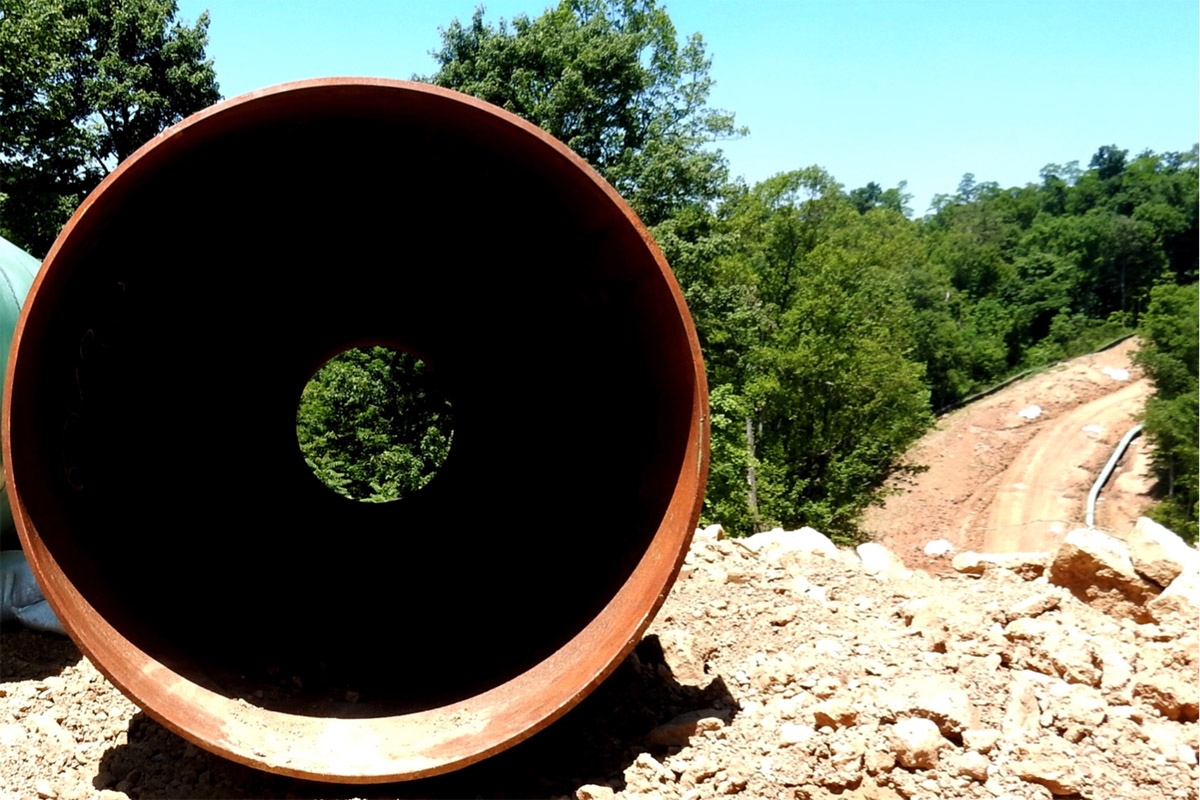Last month, the Pennsylvania Supreme Court struck down a key section of the state’s oil and gas law. At issue was the constitutionality of Act 13, which allows companies to use eminent domain to seize private land for some natural gas projects. Zahra Hirji, who has been covering the story for InsideClimate News, caught us up on what the ruling means for Pennsylvania’s pipeline boom—and beyond.
The Allegheny Front: So why did the Pennsylvania Supreme Court rule that this part of the state’s oil and gas law is unconstitutional?
Zahra Hirji: They struck down a section of the law that essentially let companies broadly seize private land for underground natural gas storage. What their decision said is that you can’t assume that these kinds of projects are in the public good. For a project to get the authority to use eminent domain—to take private land—means it has to be in the public good. And in Pennsylvania, it has to be in the public good of Pennsylvanians. And they said for a private company, in particular, to take private land to make money for a private purpose—they didn’t see why that was in the public good. So that’s why they struck it down. But this potentially raises larger questions about what it could mean for other fossil fuel projects that similarly might be using eminent domain in the state.
LISTEN: This Court Ruling Could Throw a Wrench in Pennsylvania’s Pipeline Boom
AF: And your reporting focuses on the implications for one of the largest pipeline projects in Pennsylvania—the Sunoco Logistics Mariner East 2. So how could that be affected?
ZH: The Mariner East 2 pipeline is what’s called a “natural gas liquids” pipeline. So it would transport drilling products like ethane or butane, which can be used for lighting or heating fuel. And this is one of the few types of pipelines that state regulators have the authority to sign-off on eminent domain [issues]. And there are dozens of landowner lawsuits against this pipeline for the company’s use of eminent domain. In other words, they’re challenging the fact that this pipeline is in the public good. So with this recent ruling, some of the arguments that the justices make could be relevant to these other cases having to do with Mariner East 2 that are already working through the courts.
AF: And what about gas infrastructure projects beyond Mariner East 2? Could this Pennsylvania Supreme Court ruling have implications for any of those?
ZH: I looked at a dozen proposed pipelines, and Mariner East 2 was the only natural gas liquids pipeline. The other 11 were all natural gas pipelines. And that’s an important distinction because with those two different types of pipelines, the companies get their authority to use eminent domain from different bodies. With the natural gas pipelines, the companies get their authority from federal regulators. And it’s only with the natural gas liquids pipelines that the companies get authority from state regulators.

Credit: Paul Horn / InsideClimate News
AF: And as you know, these eminent domain fights over pipelines or other gas infrastructure are happening all over the country. Where does this decision fit into that larger context?
ZH: I spoke to lawyers who were apart of this case and who weren’t a part of this case. And what they told me, in looking at the justices’ decision, is that they were really interested in looking at this issue. So in terms of future cases in Pennsylvania, I think there is interest to explore this issue more. Who knows how it will play out? But it is a potentially bad signal for the oil and gas industry. As part of the larger movement, this is just the latest win on eminent domain for private property owners across the country. Activists and landowners are pushing back on these big projects in every way they can, and they’re increasingly turning to eminent domain as one of the ways to do that. And they’re starting to see wins, like the one in Pennsylvania. A lot of environmentalists and landowners were bolstered by the success of people who were pushing back against TransCanada’s Keystone XL Pipeline. That’s where a bunch of landowners in Nebraska, for example, pushed back against the company’s route and potential use of eminent domain. And it’s spread from there. I’ve been told by activists that every time there is a win—even if it’s specific to Pennsylvania or Kentucky—it absolutely energizes them and the landowners they’re working with in another state.
###
Zahra Hirji is a reporter with InsideClimate News. To read her story about the recent Supreme Court ruling, go here.

